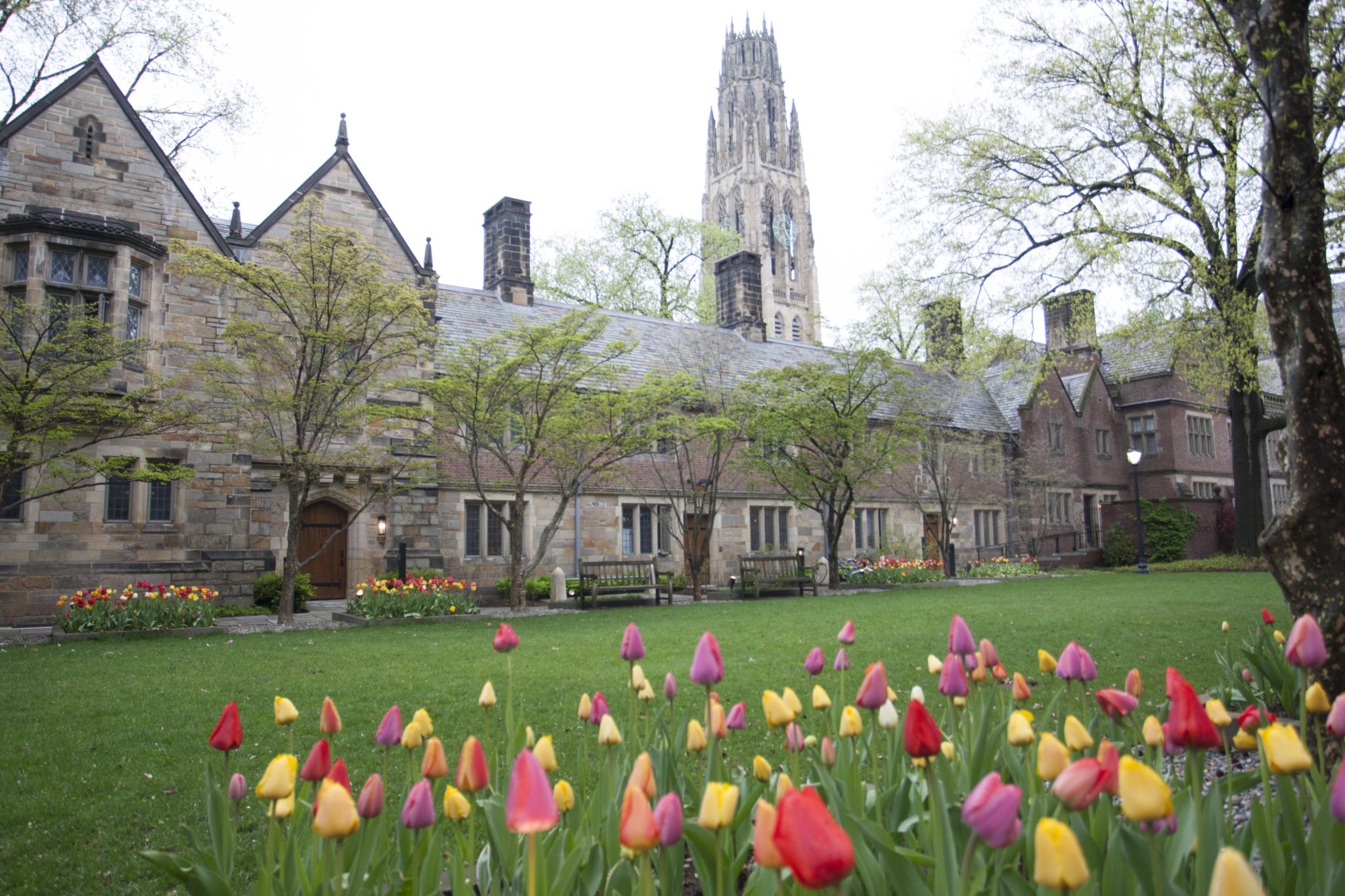
Jack Devlin
150 attendees hailing from 12 countries gathered at the Yale Divinity School on Wednesday for the opening ceremony of this year’s International Jonathan Edwards Conference at Yale.
The conference, lasting from Oct. 2 to 4, is open to the public and features scholars affiliated with the Yale Jonathan Edwards Center, a University research institute dedicated to studying the Protestant theologian’s work. For 30 years, the Yale Divinity School has been home to the center, which has a number of partner centers across six continents. Together, the groups encourage research and publications about Jonathan Edwards’s life, writing and philosophy.
“In short, Yale is the go-to place for any serious student of Edwards,” director of the Jonathan Edwards Center at Yale Kenneth Minkema wrote in an email to the News. “This convergence of resources, and the ever-expanding interest in Edwards … has led, through the generosity of the McDonald Agape Foundation, to convening a major international conference at Yale on Edwards, his historical legacies, and his relevance for today.”
The Jonathan Edwards Center hosts an open archive of Edwards’s writings and scholarly publications online, and the Beinecke Rare Book and Manuscript Library houses several of Edwards’s original texts.
Rhys Bezzant — the director of the Jonathan Edwards Center of Australia at Ridley College, an Anglican theological college — attended the conference with two doctoral students studying Edwards through his center.
Bezzant wrote in an email to the News that his center’s goal is to promote the study of evangelical history through Edwards’s texts. The center holds annual lectures, and he writes for Christian media outlets in Australia and the U.S.
“Though Edwards is not as well known in Australia as in the US, I hope to be setting the ledger straight!” Bezzant wrote. “For me, the network of Edwards Centers worldwide is a great support and encouragement in my research. There is a global fellowship of Edwards scholars to whom I can turn for advice or feedback, and vice versa.”
Joel Burnell, director of the Jonathan Edwards Center of Poland, wrote in an email to the News that he is one of two representatives from his country attending the conference. His research concerns Edwards’s ethics and theology, and he has also translated some of Edwards works into Polish. His colleague — Michał Choiński, a lecturer at the Institute of English Studies at Jagiellonian University, Kraków, Poland — researches the rhetoric of preachers during the Great Awakening as well as literature of the American South.
Willem van Vlastuin, a co-director of the Jonathan Edwards Center of Benelux, was one of three attendees from Belgium and the Netherlands, which have a joint center. He told the News his center researches Edward’s doctrine of Christ and interpretation of slavery, among other topics.
In a draft version of his speech, to be given on Oct. 4, Andreas Beck, Vlastuin’s co-director, described the research that has been done at the center in the last eight years.
“This affiliation with Yale is very important for us,” Beck wrote in his speech.
Tibor Fabiny, director of the Jonathan Edwards Center of Hungary, attended the conference and will speak on Jonathan Edwards’s work in Hungary and the current work of the center, including translations and organizing a workshop on “The Relevance of Jonathan Edwards Today.”
Over the course of the conference, delegates from each center will present on their institution’s recent findings. Each session features research talks and updates on the scholarship of faculty members from various continents.
Jonathan Edwards graduated from Yale College in 1720.
Helena Lyng-Olsen | helena.lyng-0lsen@yale.edu







